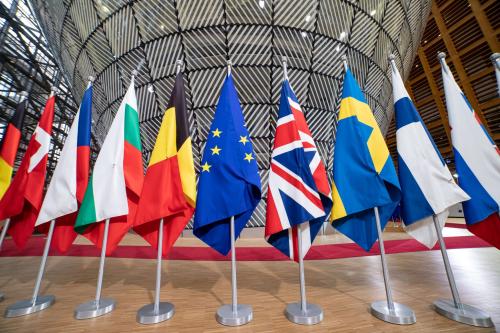

2:30 pm EDT - 4:00 pm EDT
Past Event
2:30 pm - 4:00 pm EDT
1775 Massachusetts Avenue NW
Washington, DC
20036
British voters go to the polls on May 7 to choose their leadership in a general election that looks be the closest in decades. Americans generally view U.K. elections like the sport of cricket—boring, incomprehensible, and lacking in consequence—but this year’s contest is shaping up quite differently.
The traditional governing Labor and Conservative parties are locked in a virtual dead heat. With neither party likely to gain an absolute majority, governing will likely require the support of other parties to form a coalition or minority government. The Scottish National Party, already dominant in Scotland, is poised to become the U.K. parliament’s third largest party, which will renew debates about Scotland leaving the Union. Finally, Prime Minister David Cameron has pledged to hold a referendum on Britain’s EU membership if his conservatives win. In short, the election will be pivotal in determining the nation’s unity, identity, and place in Europe and the world.
To explore the policy issues that have shaped the debate, possible scenarios for the election, and what the various coalition makeups might mean for the U.K., Europe, and the United States, the Center on the United States and Europe hosted a panel discussion on May 5. Panelists were Heather Conley of the Center for Strategic and International Studies, Geoff Dyer of the Financial Times, and Philippe Le Corre and Thomas Wright of Brookings. Brookings Fellow Jeremy Shapiro moderated the discussion.





Mariana Budjeryn
April 29, 2024

Constanze Stelzenmüller
April 22, 2024

Tara Varma
April 15, 2024